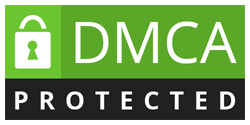What Will I Stand For
Chapter 5: What Will I Stand For
In Chapter 5 of your personal management treatise, you will consider behavioral ethics and workforce diversity. As the world becomes increasingly interrelated, managers will be expected to be comfortable working with a wide range of cultural differences. How will you prepare for this global environment? In addition, cultural differences sometimes translate into different ethical practices. Do you have a well-established personal ethical code? The goal of this chapter is to help you analyze how you can best prepare yourself to be an effective manager in a multi-cultural society. You will assess the impact of cultural differences on your approach to management, consider how you will gain cultural intelligence, and determine the ethical structure upon which you will base decisions and actions.
For this chapter you may choose to address the following topics. Now answer to the following.
- In what ways will you treat those whom you manage equally and in what ways will you treat them equitably? What strategies will you use to balance the two approaches appropriately?
- In considering your personal ethical code, what are your core values, those areas where you will not compromise?
- How do you define diversity?
- When managing a diverse organization, what strategies will you use to maintain a balance between respecting the rights of individuals and adhering to organizational standards and culture?
- What strategies will you use to make your managerial style more sensitive to different cultures?
- How do you plan to build your level of cultural intelligence? How will this new knowledge affect your management approach?
This chapter should be from 5 pages with at least two references from previous courses and two new references from scholarly resources.
References:
Badaracco, J. L., Jr. (1998). The discipline of building character. Harvard Business Review, 76(2), 114–124.
Stewart, R., Volpone, S., Avery, D., & McKay, P. (2011). You support diversity, but are you ethical? Examining the interactive effects of diversity and ethical climate perceptions on turnover intentions. Journal of Business Ethics, 100(4) 581–593
Kaptein, M. (2011). Understanding unethical behavior by unraveling ethical culture. Human Relations, 64(6), 843–869.
Gino, F., & Pierce, L. (2010). Lying to level the playing field: Why people may dishonestly help or hurt others to create equity. Journal of Business Ethics, 95, 89–103..
Banaji, M., Bazerman, M., & Chugh, D. (2003). How (un)ethical are you? Harvard Business Review, 81(12), 56–64.
Stimson, W. (2005). A Deming inspired management code of ethics, Quality Progress, 38(2), 67–75.




